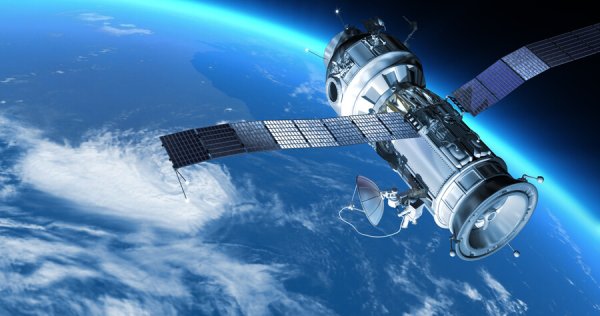Imagine satellite systems like big networks in the sky that help with things like global communication, navigation, and weather prediction. But these networks aren't totally safe from bad guys on the internet. One thing that's making them vulnerable is a problem with a computer language called Java. We're going to take a closer look at how all of this works – from the satellites to the computer language Java, and what we can do to keep everything secure.
Learning About Java Problems
Think of Java like a tool that's used to build software for satellites. However, this tool can sometimes have weaknesses, making it easier for hackers to break into these satellite systems. These problems can happen because of mistakes in the code (like a typo in an essay) or using old parts that aren't strong enough.
What Can Go Wrong?
- Trouble with Talking: Satellites talk to each other and send important information. Hackers could use Java problems to listen to these conversations, change what's being said, or even stop the messages from getting through.
- Getting Lost in Space: Think about GPS that helps you find your way. Java issues could make GPS data wrong, leading you to the wrong place, and causing accidents or confusion.
- Secrets Out: Satellites collect lots of information that's supposed to be private. If someone takes advantage of a Java problem, they might break in and get access to all this secret data.
- Services Stopped: Things like phones, TV, and weather forecasts depend on satellites. If hackers take advantage of Java problems, they could stop these services, creating problems for a lot of people.
Learning from Real Problems
- Galileo Incident (2019): Although not because of Java, this incident showed how complex satellite systems are. It's a reminder that problems, even if not directly related to Java, can still mess up things and that strong security is really important.
- GPS Tricks: People have fooled GPS before. While not linked to Java directly, these tricks show that satellite systems can be fooled. This can be dangerous for things like airplanes and boats.
- IRIDIUM Hack (1997): Back in 1997, a satellite system was hacked, showing how someone with bad intentions can take control of satellites. This event shows the dangers of not having good protection for satellite systems.
Keeping Things Safe
- Updates and Fixes: Just like you update your apps on your phone, satellites need updates too. Keeping Java and other parts up to date helps block bad guys.
- Checking for Problems: Just as a teacher checks your homework, experts review satellite software to catch any problems before they become big issues.
- Keeping Things Separate: Imagine keeping your toys in different boxes. For satellites, keeping the important stuff away from things that might be weak or have problems is like keeping your toys safe.
- Early Warnings: Just like a security guard at the door, special systems can detect if something strange is happening to satellites. Finding out early can help stop problems from getting worse.
Conclusion
As we stand at the intersection of satellite systems, the intricate world of Java vulnerabilities, and the imperative of cybersecurity resilience, we find ourselves poised on the precipice of an ever-evolving digital landscape. This comprehensive exploration has illuminated the multifaceted challenges that arise as we venture into the uncharted territory of satellite cybersecurity. Just as Chandrayaan's journey to the moon demanded meticulous planning and a vigilant approach, so too does our journey in securing satellite systems in an era fraught with Java vulnerabilities.
At digiALERT, we recognize that in the vast expanse of space and technology, security is not a luxury but a necessity. Just as a satellite navigates through the cosmos, our solutions navigate the intricate cyber terrain to fortify satellite systems against the lurking menace of vulnerabilities. This blog serves as a testament to our commitment to providing innovative solutions that safeguard our clients' satellite assets, ensuring that they remain impervious to cyber threats.
As Chandrayaan's moon landing was a testament to human ingenuity and persistence, so is our endeavor to fortify satellite systems against the ever-evolving challenges of the digital era. By collaborating with us, our clients empower themselves to embark on a journey that promises not only connectivity and exploration but also security and resilience.
In this era of rapid technological advancements, let us continue to explore the cosmos and the digital frontier with confidence, armed with the knowledge and solutions that can protect our satellites and the invaluable data they carry. As digiALERT, we are honored to be your partner in this mission, ensuring that the skies above and the digital realms below remain safe and secure.







